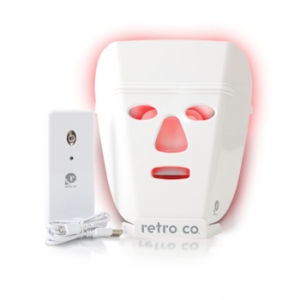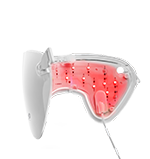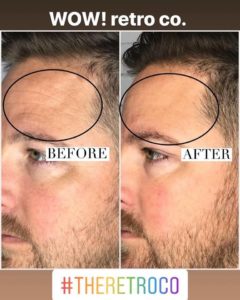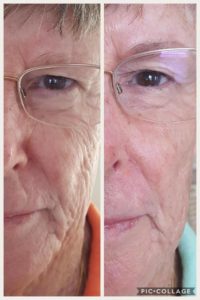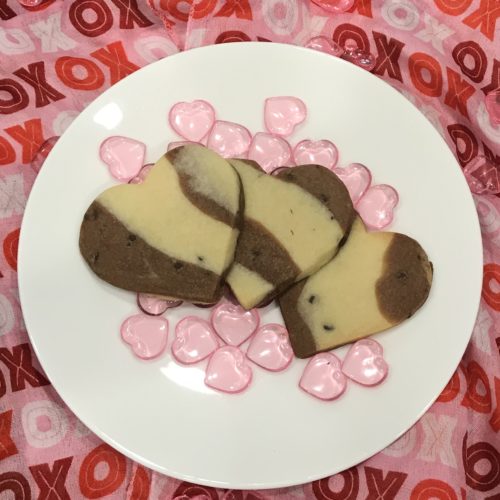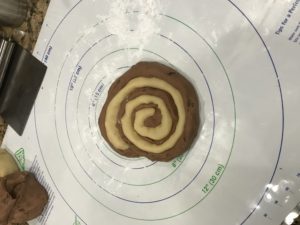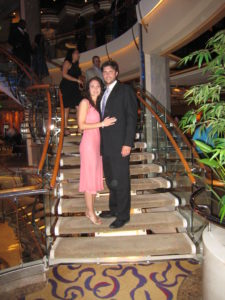This week's blog has been in high anticipation for me since it is our first guest feature. For National Eating Disorder Awareness week I wanted to highlight my friend, Lisette. I've asked her to share her story will all of us. There are multiple ways that you can follow Lisette.
Here are links to her website, Instagram, Facebook and Pinterest. She also writes articles for Recovery Warriors
Lisette's Story:
The moment a tablespoon of peanut butter reduced me to tears is etched permanently into my memory. My heart raced and tears streamed down my face. I stared at that peanut butter and was paralyzed with anxiety. Time stood still while that single serving tub of peanut butter taunted me from the cold sterile table. Across from me sat a clinician with an empathetic but stern expression. “Eat the peanut butter” she prodded gently. Next to the peanut butter sat a single package of saltine crackers. The only thing I could imagine worse than eating this peanut butter would be eating it along WITH crackers. How could she possibly expect me to do either? I tried to will my mouth to open and my throat to swallow, but at that moment, walking straight into a fire seemed easier than eating one tablespoon of peanut butter. With a mixture of emotions storming inside of my head, I went from feeling rage, to shame, to terror within seconds. And then I felt all three at once. It was the first time I acknowledged that maybe… just maybe…. I DID belong right there in the eating disorder treatment center I had been admitted to that morning. But I still wasn’t sure. I was not like the girls I had seen in after-school specials and talk shows. They were emaciated teenagers training for the Olympics and dealing with abuse. I was a 22-year-old graduate student from a happy home, working on a Master’s degree in Psychology (of all things). I felt like a hypocrite; how could I possibly help others with mental illness when I was unable to tackle one of the most basic life skills- simply feeding myself. I was reduced to tears by a tablespoon of peanut butter. And at that moment, nothing seemed more daunting than the task of swallowing it.
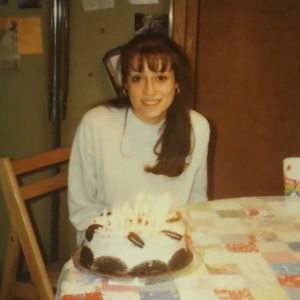
Because to me, it was not just peanut butter; it was everything. It was fat, and calories, and weight gain, and it represented me losing control. It could unravel everything I had pushed through so far. In my sick and malnourished brain, eating that tablespoon of peanut butter meant I was giving up. And that I was a failure. It would confirm what I already feared deep in my bones: I was lazy, unlovable, horrible, fat, worthless, and disgusting. And if I let myself have one tablespoon of peanut butter- I was afraid I would eat another, and another, and another. I would eat every tablespoon of peanut butter I could find because I would never be able to stop. I wanted to eat it and yet I never wanted to see peanut butter again. I wanted it and I hated it equally. In a twisted way, the only thing that made me feel better about myself was denying myself. I felt crazy. And I could not open my mouth.
Obviously, I was in a very dark place. And it wasn’t just peanut butter; I had become afraid of all food. One by one, my favorite things were forbidden as I deemed them “unhealthy”. The smaller my body got, the worse my feelings of anxiety, unworthiness, and failure grew. The more I shrunk my body, the less clearly I was able to see myself or the world around me. And the harder it seemed to find my way out of the darkness. I was consumed by the disorder.
"...the biggest travesty was the devastation happening to my soul."
The day a tablespoon of peanut butter held me hostage was over twenty years ago. I wish I could say that I stepped on the path of recovery that day and never turned back. But my recovery from anorexia and bulimia has been a very long and winding journey with many ups and many more downs. The details and specifics of my path do not matter. The number of pounds I lost or gained over the years and the symptoms and behaviors I vacillated between are not important. What does matter is my life revolved around what I ate, what I didn’t eat, what I was going to eat, what I “shouldn’t” eat, and what I was going to do about what I ate or didn’t eat. I was obsessed with calories and food and exercises and the numbers on a scale and my pants. All the while, as I lost weight, it was never, ever enough. As my body got smaller, so did my world, my perspective, my connections with others, my ability to see clearly, the ability to be present in my life and the ability to feel joy. I was physically damaging my body, but the biggest travesty was the devastation happening to my soul.
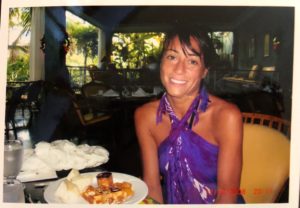
For more than two decades and over half my life, I struggled. I saw therapists and nutritionists and returned to partial hospitalization treatment programs two more times. My weight was “restored” and lost again, restored again and lost again. A few times I found what I believed was “recovery” and yet it was never on solid ground. In this “middle” place of “recovery”, I was no longer visibly underweight. Yet I continued living in a prison in my head, engaging in very unhealthy behaviors, and obsessing about my body, size, weight, exercise, and food. I think I fooled those around me into believing I was “ok.” I know I fooled myself. This version of “recovery” was not lasting though, because any time I encountered life stressors (good or bad) I relapsed. Eventually, I wondered if I would ever recover. If I could ever recover. At my best, I was living a very restricted life where I constantly and carefully watched my food and exercise. I focused more on what people thought of me than I did on my own heart. At my worst, I was secretly engaging repeatedly in harmful behaviors feeling unable to stop while ignoring my relationships. I hated myself, dreaded waking up in the morning, and felt hopeless and alone.

One of the worst times came surprisingly after my third son was born. Postpartum depression was the nudge that pushed me off the diving board back into the sea of my eating disorder. I quickly found myself drowning. I had the life I dreamt of- an amazing husband, three healthy children, and the luxury of being a stay at home mom- and yet I wanted to run away. Worse, I wanted to give up on myself and on life. And yet with the darkest time in my life came one of the greatest gifts. Because it was the catalyst I needed to make REAL, lasting and healing changes. On my knees, I was broken and finally painfully honest with myself. At that moment I was able to open myself up to ask for and receive help. And to do it in a new way.
"Recovery was about learning to feed myself again both physically and spiritually."
Recovery was terrifying, humbling, and challenging in ways I didn’t even know possible. It demanded I let go my old thought patterns and irrational beliefs and stop caring what others thought of me. It meant facing my biggest fears and greatest anxieties every single day, three times a day- plus snacks. It meant surrendering to a treatment team and trusting that for the moment they knew more than I did. It meant understanding I was not seeing clearly while believing I would eventually learn to trust myself. It required me to connect with my higher power and to ask for and accept help. Recovery was about learning to feed myself again both physically and spiritually. It meant going against society and making myself a priority over my children and husband. I had to make myself a priority when I did not even feel worthy of it. I didn’t even feel worthy of a tablespoon of peanut butter.
"Ultimately to be free I had to reject the diet culture..."
Gradually I learned life-changing skills including self-compassion, mindfulness, practicing gratitude, and how to say NO. I practiced sitting with discomfort- both physical and emotional. I learned that life is messy and finding the beauty within the chaos is everything. And I opened my mind and educated myself on the science behind dieting and weight. Learning about Health At Every Size gave me the ammunition I needed to fight diet culture head on. I listened to countless podcasts, read articles and books, and connected with other warriors also fighting this battle. Ultimately to be free I had to reject the diet culture that is so pervasive we all swim unknowingly in it. I had to let go of ever trying to control my body’s shape and size again. No matter how tempted I was.
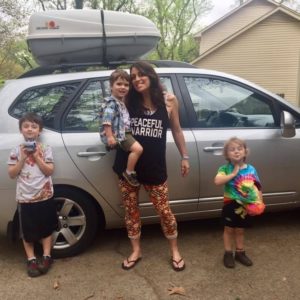
Because of my shame and the stigma surrounding mental health, I silently forged through my recovery without telling anyone in my life except a few very close friends. In a world where women bond over their latest diets, “cleanses” and exercise routines, learning to accept my changing body was counter culture. I was no longer comfortable joining into the constant conversations my friends had about which body parts they needed to change, how much weight they had gained, or what food was “so bad for you.” And at times it was very lonely. Somewhere along the journey, I found my voice and learned that sharing myself authentically and unabashedly can not only decrease stigma and hopefully helps others, but it also sets me free.
"It reminds me that recovery is worth every drop of blood, sweat, and tears."
This week, two of my boys asked for sandwiches for lunch. Among the cacophony of their giggles and clatter, I tried to simultaneously make lunches, answer a text, and avoid tripping over the four-year-old clinging to my leg. While cleaning up, without a second thought, I pulled the knife out of the jar and licked off the excess peanut butter. It was probably a tablespoon worth. Maybe more. And at that moment I knew: I was letting go of my eating disorder. Because finally, peanut butter was once again just that - peanut butter. It held no power over me. It almost seems like a different life when a tablespoon of peanut butter reduced me to tears. And yet it seems like yesterday. It reminds me that recovery is worth every drop of blood, sweat, and tears. And that is never too late to choose recovery.
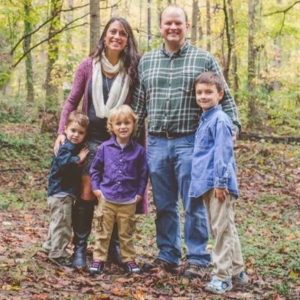
If you or someone you love is struggling please understand eating disorders are complicated, overwhelming, and dangerous. They are about so much more than food and weight and you can NOT tell how someone is doing in their recovery simply by their weight or appearance. Untouched and hidden by shame, eating disorders can fester and grow. However, true real lasting recovery IS possible and one day peanut butter can return to just being peanut butter.



